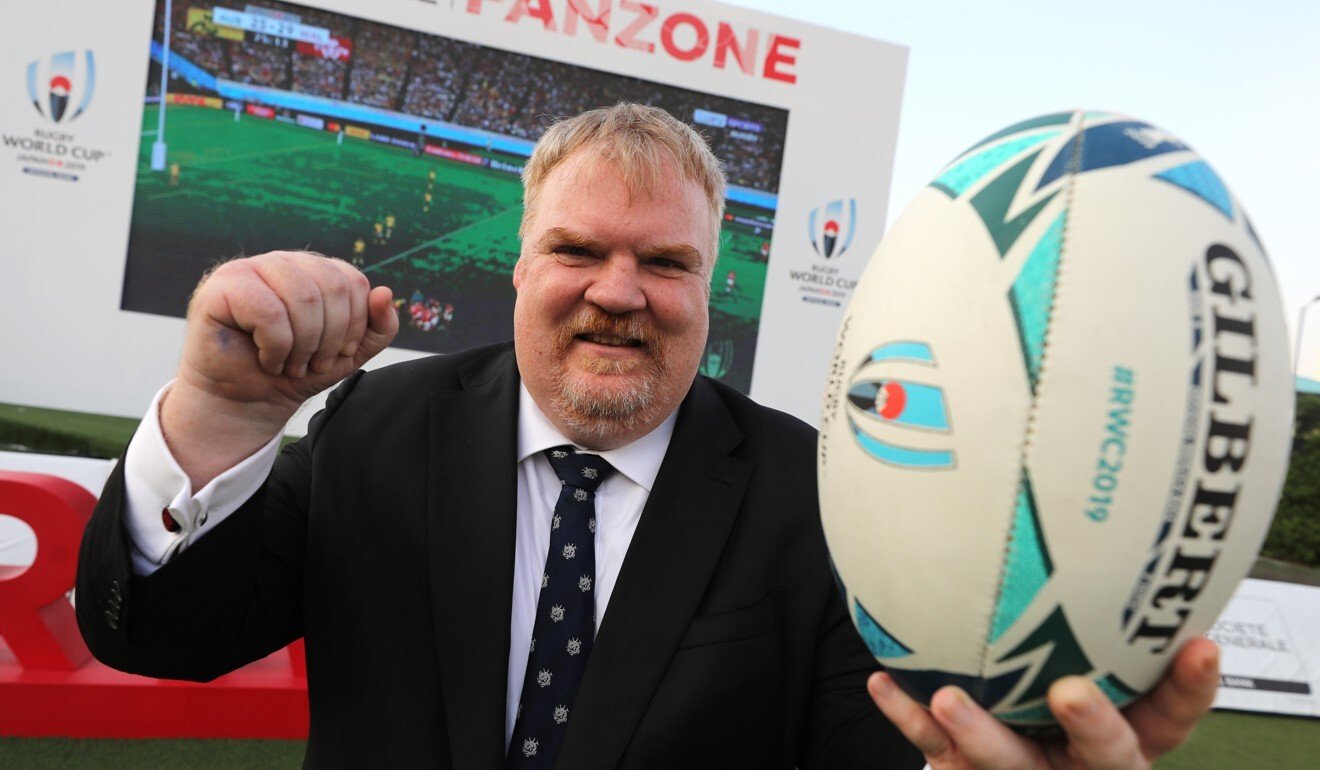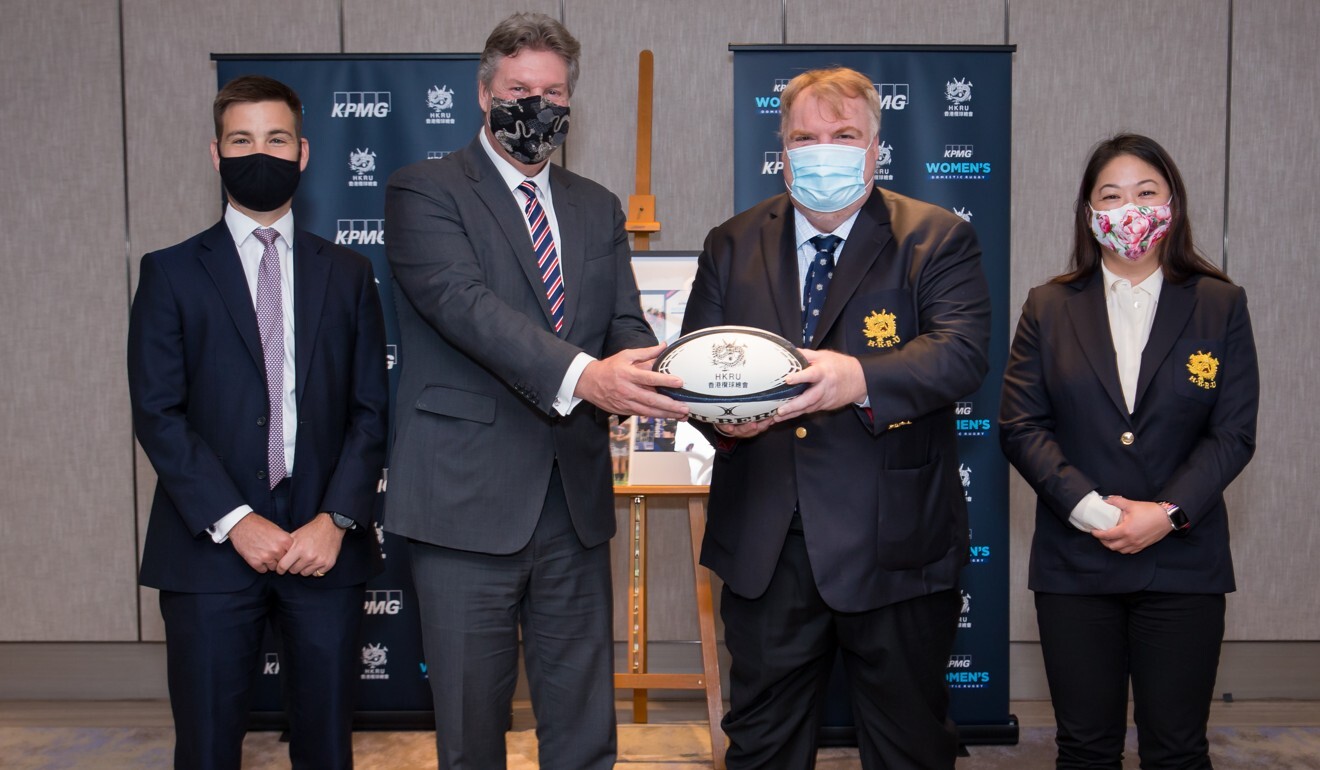
Protests and a pandemic: Hong Kong rugby boss Patrick Donovan keeps the faith despite two and a half years without a Sevens
- Chairman Donovan recalls city protests ‘literally days after’ his election in 2019 before the Covid-19 pandemic in 2020
- Despite postponements and cancellations, domestic and international set-ups are trending in a ‘strong direction’
Hong Kong rugby chief Patrick Donovan’s tenure has been unprecedentedly arduous. Elected as chairman of the Union in the summer of 2019, he was immediately thrust into helping navigate the sport through citywide demonstrations – but that was only a prelude to what was to come.
“This year has certainly been interesting. I reflect back on a term that was disrupted initially by the protests, then by the global Covid-19 pandemic. The Union has faced challenges unlike any other in our 50-year history,” said Donovan, previously a member of HKRU’s board since 2013 having played for Aberdeen and HKU Sandy Bay.
“We had the protests literally days after my election and the first part of my tenure was addressing international concerns to hold a safe Sevens. Then it was about playing as much of our domestic season as there were disruptions to school and youth rugby. It was about trying to ensure we had a successful Sevens in April 2020 – then we got blindsided by Covid-19 and the focus had to pivot,” Donovan said.

“We’re well aware of [its] impact on our revenue model and we’re still highly dependent on a successful Sevens. It’ll have been two and a half years by the time we hold the Sevens in November 2021. We’re fully cognisant of that.
“It’s certainly been more challenging than earlier terms on the board – not what I expected, or what any of us would have wished for – but we spent time to ensure we have a Rugby Union in Hong Kong for years to come and that we are in as good a position as possible to come out of this.”

“Unfortunately, there’s been a lack of competition. People forget that there was a Challenger Series with three competitions that were meant to be played, the winner then going on to the World Series. Hong Kong came second in that and – had the third event gone forward, with the points being where they were – we could probably have qualified for the World Series. Covid-19 took it out of our hands, unfortunately,” Donovan said.
“There are significant challenges to the international game … but I really do look forward to some bright spots on the horizon. We have both our men’s and women’s sevens teams in the Olympic repechage in Monaco in June and if we’re successful, those individuals will get to represent Hong Kong in Tokyo. So they’re still working extremely hard at the [Hong Kong Sports Institute] to get ready.”

Donovan, who arrived in Hong Kong in 1996, shared increasing optimism as the worn-out world welcomes 2021. Hong Kong, let alone its rugby, may eventually move on from the pandemic – vaccines willing.
“As any chairman coming in, there are key areas that you want to focus on. We had launched a new four-year plan that was going to take us through to 2023 and I’m still confident that it proves strong direction for our community in this increasingly challenging environment.

Donovan also outlined the Union’s double downing on combating youth drop-out rates by identifying “why youngsters play rugby in the first place”. He felt such data would help in its aim to engage grass roots so as to breed new senior-level and national team stars. All age groups have been on standby owing to government-imposed pandemic precautions.
“One of the most disappointing things was the lack of game time for minis, schools and tertiary teams. That is the future of our game. Who’s going to come through into adult rugby,” he said.
“A lot of these have been out of our control with ground closures, restrictions on numbers on fields – and we fully understand that because we do all we can to minimise risk in our community. On the other hand, it’s a balancing act because we want young players to be out in the fresh air in a safe and controlled environment. It seems like we’re trending downwards [in local and imported Covid-19 cases], so let’s hope the grounds are reopened and we can start again.”

“Another disappointing one is we find ourselves with no New Year’s Day youth tournament – the first time in 54 years. That is our showcase for youth and has launched the career of many future internationals,” Donovan said, adding that organisers will look at a return around Easter, subject to pitch availability.
Nonetheless, the HKRU successfully introduced 16 “sports intervention programmes”, impacting more than 10,000 youngsters in the tight-knit community. Aside from its well-documented projects in the deaf and domestic helper communities, Donovan highlighted the launch of three rugby programmes – in the ADHD, special needs and refugee communities – to tackle the ever-important themes of youth behaviour, prejudices and bias, and physical exercise for the marginalised.
“If I have got us moving in that [youth- and community-oriented] direction, I’d be very proud of that. I think the rugby community – through the protests, through the pandemic, now going into a second rugby season of Covid-19, Sevens being postponed, et cetera – is very resilient. I guess that is similar to Hong Kong as well. People go through tough times, but we get through it and hopefully we come back stronger.”

